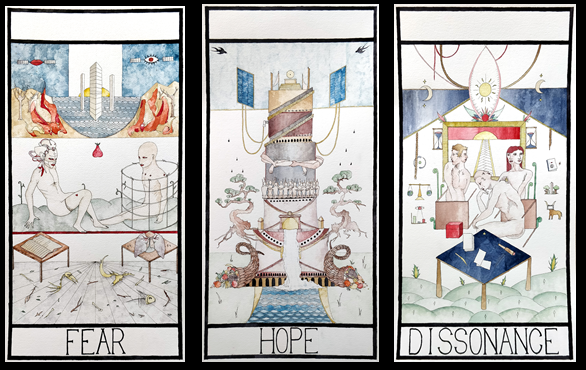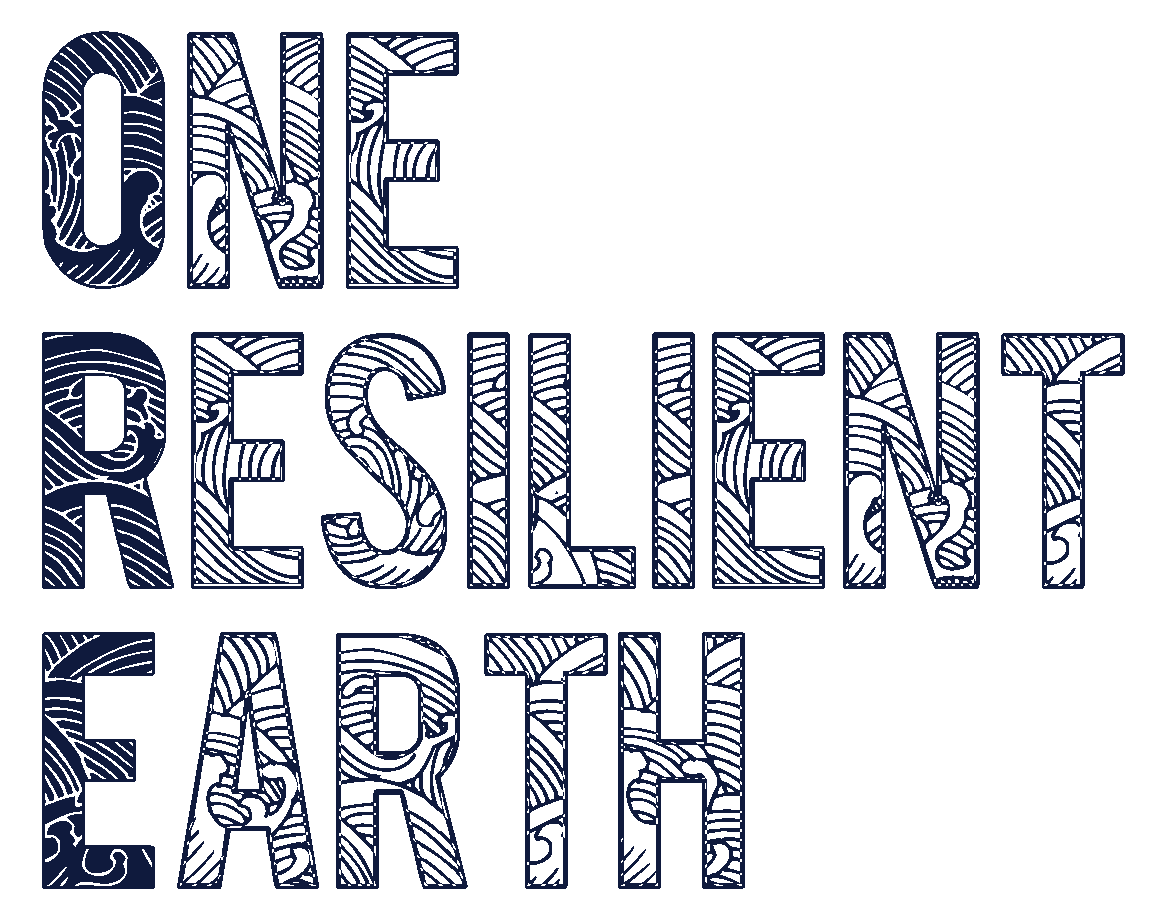Resilience Frontiers laid the foundation for One Resilient Earth by offering an opportunity to experiment with futures thinking, mindfulness and the arts in facilitating a collective intelligence process and envisioning a climate-resilient future. One Resilient Earth is a partner of Resilience Frontiers.
Before founding One Resilient Earth, Laureline Simon worked with the United Nations Climate Change Secretariat (UNFCCC) and was given the responsibility to co-design and organize a 5-day brainstorming event to kick-start ‘Resilience Frontiers’, a multi-year collective intelligence process on the future of climate resilience. The event was catalyzed by the United Nations Climate Change Secretariat, in collaboration with multiple private and public sector partners, including Canada’s International Development Research Centre, EIT-Climate-KIC, the Food and Agriculture Organization of the United Nations, the Global Water Partnership, the United Nations Educational, Scientific and Cultural Organization, the United Nations Environment Programme, and the United Nations Office for Outer Space Affairs.
One hundred visionary thinkers and thought-leaders from around the world took part in the brainstorming conference organized in Songdo, Korea, in April 2019. They addressed questions such as: ‘Can we merge climate change impacts scenarios with various scenarios of socially and economically transformed versions of today’s world so as to inform climate change adaptation plans?’ and ‘Can we go beyond the extrapolation of current trends so as to best mitigate and/or preempt risks that could increase the vulnerability of various population groups to climate change?’ Their collective work resulted in the formulation of a vision of a climate-resilient post-2030 world, of 3 cross-cutting objectives and 8 possible pathways towards the vision, which can be found here.

According to this vision ‘a global change in consciousness towards a ‘nature-first’ culture fosters a (re-)connection to the global ecosystem, which drives individuals and societies to assume their responsibility in the stewardship of nature. The health of ecosystems, including all living beings, is understood as both a central condition and core criterion for human resilience to climate change, and thus for human security worldwide. A global system change translating into new forms of habitats, as well as social and economic practices enables the continuous regeneration of societies, economies and ecosystems. This takes place against the backdrop of a wide application of frontier technologies and of a retooled financial system. Equitable access to data becomes a global public good and fosters inclusive public dialogues.’
The collective intelligence process was co-designed with facilitators having expertise in futures literacy and moonshot thinking respectively. It resulted in a hybrid methodology to both envision desirable futures and question underlying assumptions.
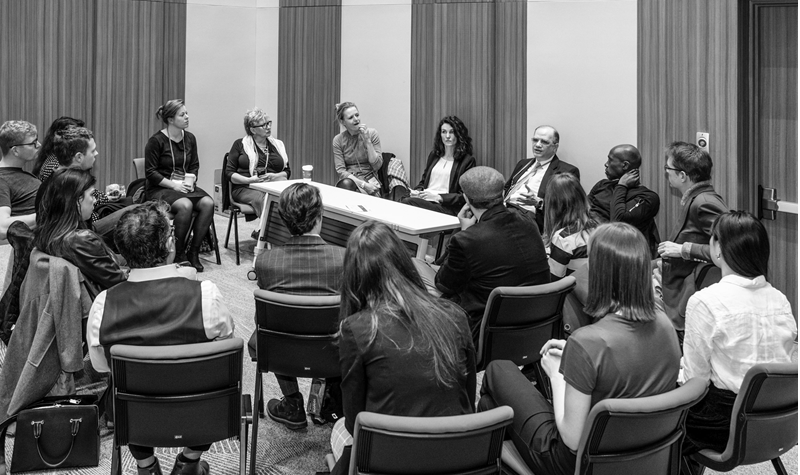
Mindfulness practices were part of the daily programme of the brainstorming conference, and a meditation guided by a Zen master took place at the end of the week.
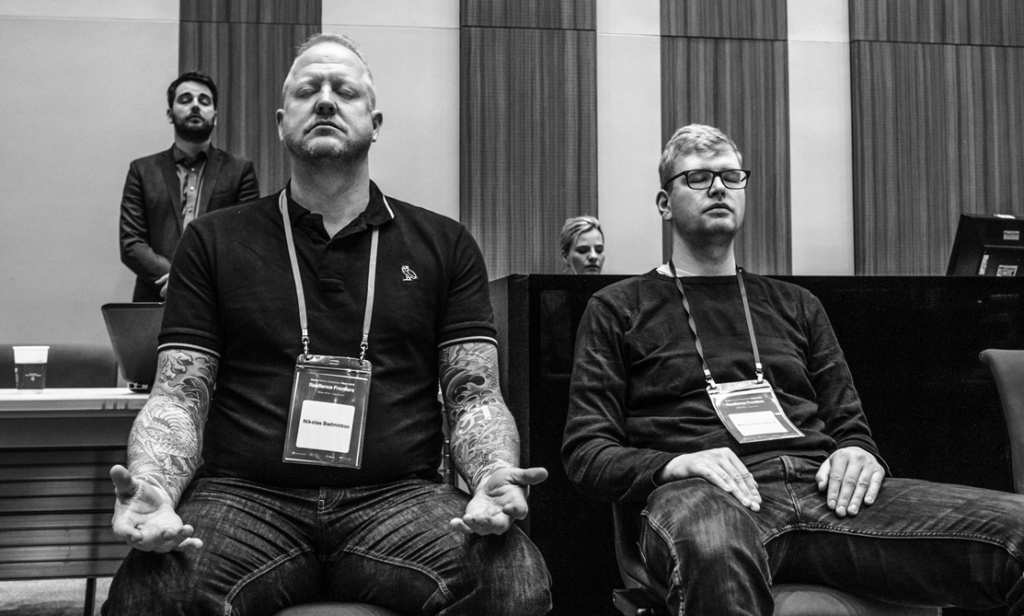
Art was also woven into the programme of the event, with projections of artworks at strategic moments, the presence of Maxime Simon, a visual artist who painted during the entire duration of the event as an echo to the discussions in the room, and through a panel on the role of art in visioning processes.
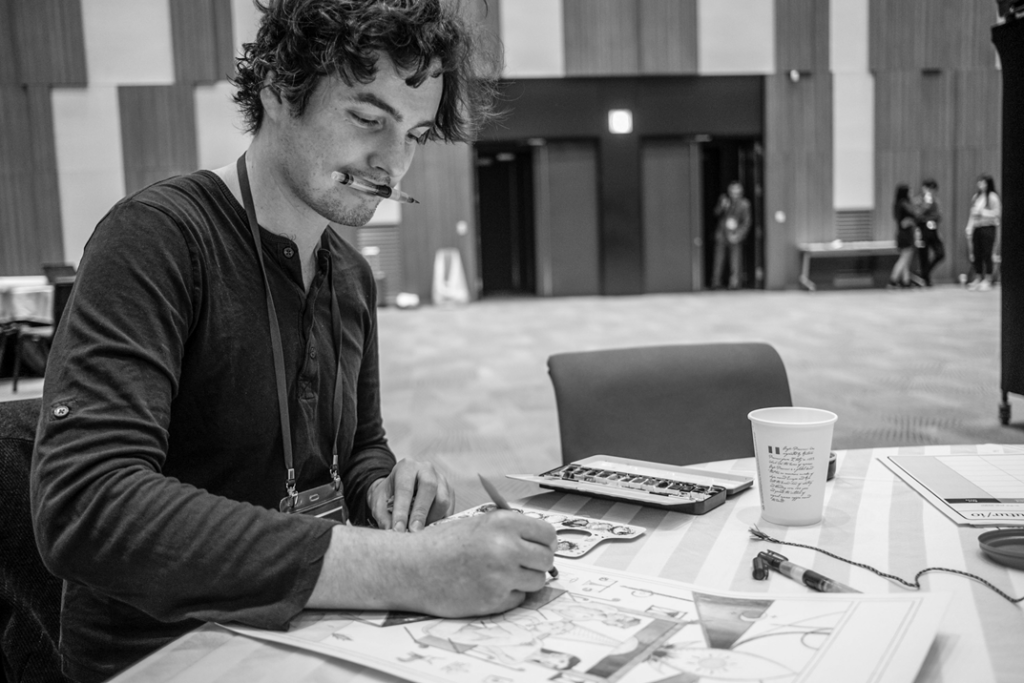
The artists who generously agreed to have their artworks projected during the event are: Alec Soth, Andreas Gursky, Ann Hamilton, Ben Johnson, Brad Sloan, Christopher Manzione, Emmet Gowin, Florian Mueller, Frederic Duquette, Hagan Strand, Jan van Ijken, Johns Gerrard, Michael Wesely, Neri Oxman, Peter Duong, Suwon Lee, Thomas Flechtner and Tishk Barzanji.
The 5-day brainstorming conference proved transformative to the participants. Tom Mitchell, Chief Strategy Officer at EIT Climate-KIC, concluded:
‘What I am taking away from this experience is that we have to radically change the way we are programming [climate change] adaptation globally at the moment, to something that is much more experimental, more diverse, more learning-based, and really using cutting-edge technology as well.’
A short film on the event can be viewed here.
Today, One Resilient Earth is one of the partners of Resilience Frontiers and engages in follow up workshops and conversations.
